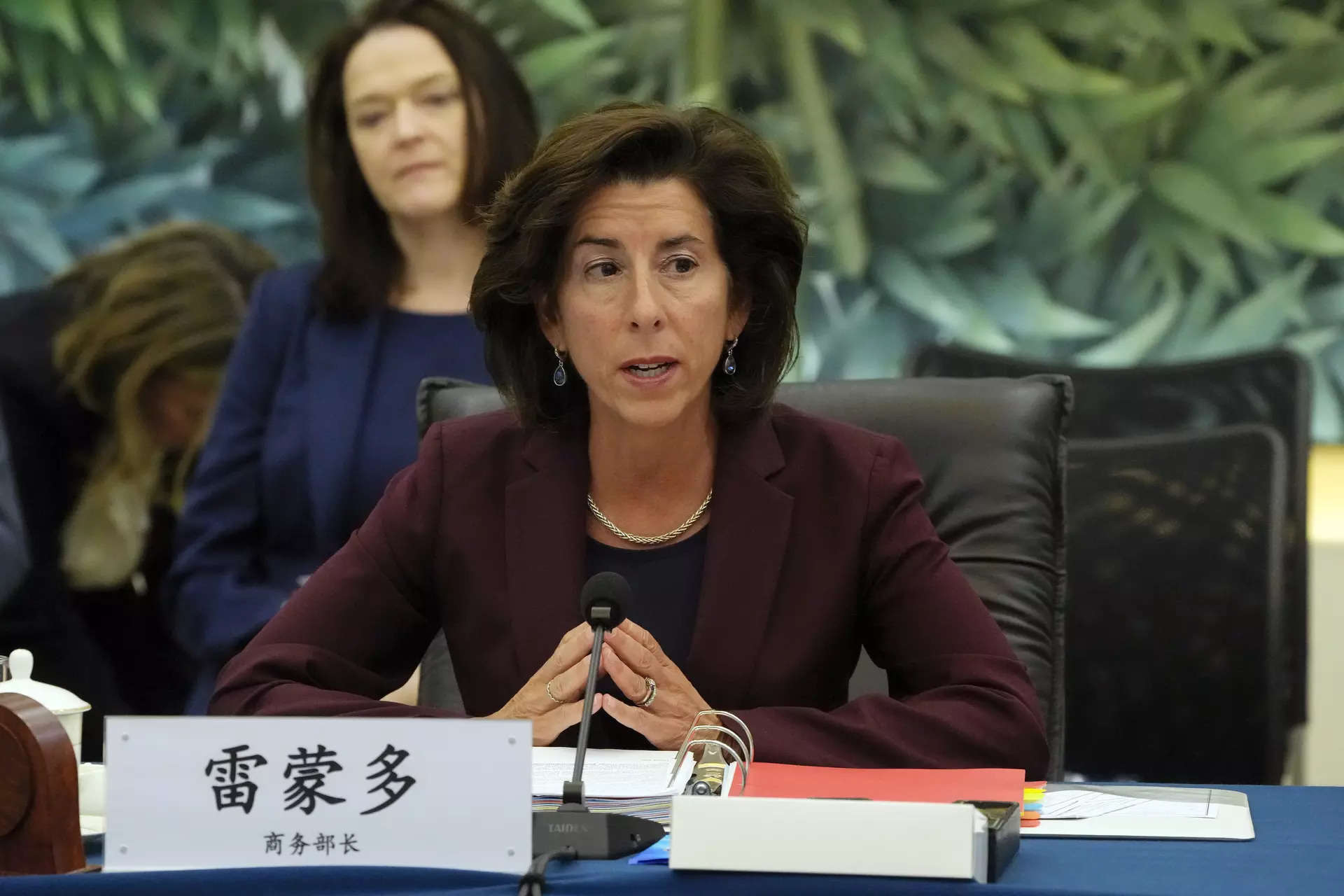Business
US trade chief: Talking to China is no ‘sign of weakness’
WASHINGTON: Holding talks with Beijing officials is not a sign of weakness by Washington, the US commerce secretary said Sunday, adding that not talking can lead to greater tensions and misunderstanding.
“It’s in the US interest. It’s in China’s interest. Indeed, it’s in the world’s interest for the US and China to have a stable and significant commercial relationship,” Secretary Gina Raimondo told CNN’s “State of the Union,” days after returning from Beijing.
“I do not accept the premise that talking and communicating is a sign of weakness” toward China, she added.
Raimondo met with top officials during her Beijing visit, including her counterpart Wang Wentao and Prime Minister Li Qiang.
The visit came as the Biden administration has been working to restore a more effective working relationship with Beijing at a time of deep and continuing strains.
It was the fourth visit by a senior US government official since early summer, each of them on a fraught mission amid severe challenges — including Raimondo’s recent allegation that China-based actors had hacked her email.
“I want it to be clear with them that we aren’t foolish,” she told CNN. “We aren’t closed eyes to the reality of what of what they’re trying.”
She added: “I put it on the table and let them know… that it’s hard to build trust when you have actions like that.”
Raimondo said her Chinese counterparts recognized “that we have plenty of tools in our toolbox. In my case, export controls, outbound investment, screening, tariffs, countervailing duties — we do have sticks if you will — and we are very ready, willing and able to use those as necessary.”
She nonetheless emphasized that it was in both sides’ interest, “indeed, it’s in the world’s interest, for the US and China to have a stable and significant commercial relationship.”
The bilateral relationship faces a litany of problems, from trade disputes to Taiwan’s future to the expansive Chinese presence in the South China Sea.
Officials in Beijing have chafed in particular over restrictions imposed by the United States on the export to China of certain products, notably high technology.
Washington maintains that the export curbs are a matter of national security in the face of China’s growing military power and expanding global footprint. But Beijing sees them as an attempt to hinder its economic rise and development.
During a Beijing visit last month, US Treasury Secretary Janet Yellen sought to reassure Chinese authorities about the impact of the trade restrictions.
In July, the US presidential envoy for climate John Kerry visited China for three days in an effort to restart bilateral climate talks.
And in June, US Secretary of State Antony Blinken became the highest-ranking US official to visit Beijing since 2018.
“It’s in the US interest. It’s in China’s interest. Indeed, it’s in the world’s interest for the US and China to have a stable and significant commercial relationship,” Secretary Gina Raimondo told CNN’s “State of the Union,” days after returning from Beijing.
“I do not accept the premise that talking and communicating is a sign of weakness” toward China, she added.
Raimondo met with top officials during her Beijing visit, including her counterpart Wang Wentao and Prime Minister Li Qiang.
The visit came as the Biden administration has been working to restore a more effective working relationship with Beijing at a time of deep and continuing strains.
It was the fourth visit by a senior US government official since early summer, each of them on a fraught mission amid severe challenges — including Raimondo’s recent allegation that China-based actors had hacked her email.
“I want it to be clear with them that we aren’t foolish,” she told CNN. “We aren’t closed eyes to the reality of what of what they’re trying.”
She added: “I put it on the table and let them know… that it’s hard to build trust when you have actions like that.”
Raimondo said her Chinese counterparts recognized “that we have plenty of tools in our toolbox. In my case, export controls, outbound investment, screening, tariffs, countervailing duties — we do have sticks if you will — and we are very ready, willing and able to use those as necessary.”
She nonetheless emphasized that it was in both sides’ interest, “indeed, it’s in the world’s interest, for the US and China to have a stable and significant commercial relationship.”
The bilateral relationship faces a litany of problems, from trade disputes to Taiwan’s future to the expansive Chinese presence in the South China Sea.
Officials in Beijing have chafed in particular over restrictions imposed by the United States on the export to China of certain products, notably high technology.
Washington maintains that the export curbs are a matter of national security in the face of China’s growing military power and expanding global footprint. But Beijing sees them as an attempt to hinder its economic rise and development.
During a Beijing visit last month, US Treasury Secretary Janet Yellen sought to reassure Chinese authorities about the impact of the trade restrictions.
In July, the US presidential envoy for climate John Kerry visited China for three days in an effort to restart bilateral climate talks.
And in June, US Secretary of State Antony Blinken became the highest-ranking US official to visit Beijing since 2018.






